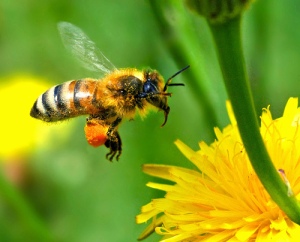 To celebrate National Honey week I have been asked to write a post about our honey related achievements and how the L8LS project have supported the local community as well as the local environment.
To celebrate National Honey week I have been asked to write a post about our honey related achievements and how the L8LS project have supported the local community as well as the local environment.Firstly the project took on 14 local like-minded people interested in learning skills in Bee keeping and the L8LS project provided these people with training, suits, hives, sites, insurance, mentoring and not to forget thousands of Bees!
The first year after training Fern Grove garden racked up 300 pounds worth of beautiful elder-flower tasting honey, which went straight back into the Bee kitty and this was for the garden to pay for next years public insurance fees. However the year after they lost the whole colony of bees which was very sad. Some say that this was because of the change in weather which has caused the bees to become confused and foraged when it was too cold, But all of the bee keepers that we spoke to agreed that sadly every bee keeper will lose a colony at sometime in their profession, so whatever the reason everyone has learnt from this learning curve.
The L8LS project have since replaced these bees and the garden harvested a small amount of honey from the hive in order to keep the bees warm during winter.
As well as the bee keeping activities that we have done we have also provided the local bees with different flowers to forage on. We have worked tirelessly over the past four and a half years on so many different sites creating gardens, empowering local people, listening to residents of what they would like to grow and although some didn't want to grow food and wished to grow flowers we took their ideas on board and agreed. But in reality it was those people who wished to grow flowers that made us more aware of how we are supporting a bigger connection which is bio-diversity. Many residents whether they are growing veg, flowers or herbs all understand how flowering plants helps the local honey bee.
Bees Bio Diversity
